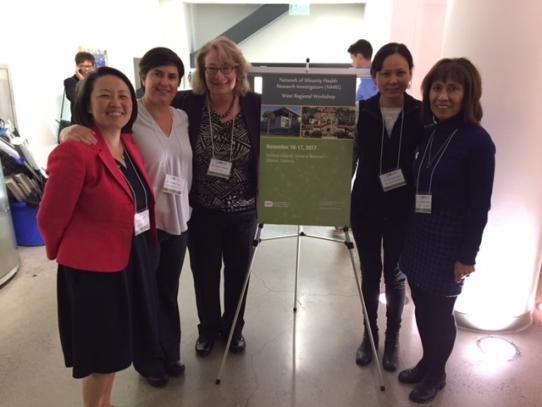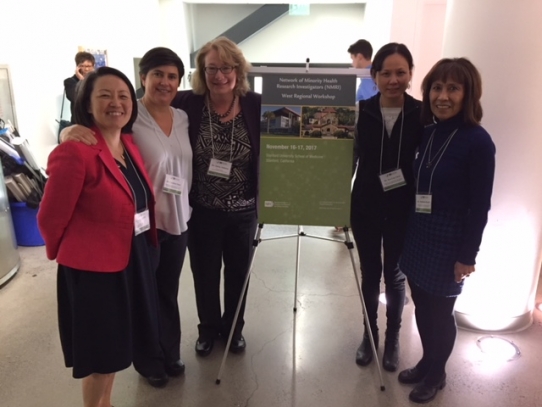

The School had strong representation at the NIH National Institute of Diabetes and Digestive and Kidney (NIDDK)'s Network of Minority Health Research Investigators (NMRI) West Regional Meeting at Stanford on November 16–17, 2019.
-
Melinda Bender, RN, PhD, assistant professor of family health care nursing, was recognized for her work on the planning committee.
-
Carolina Noya, FNP, PhD, associate professor of family health care nursing, delivered an engaging invited talk.
-
Jyu-Lin Chen, RN, PhD, FAAN, professor of family health care nursing, presented a poster about her exciting research.
-
Julene Johnson, PhD, interim associate dean for research and professor in the Institute for Health & Aging, led a roundtable discussion.
-
Mijung Park, RN, MPH, PhD, assistant professor of family health care nursing, contributed to the many discussions.
The meeting was packed with valuable information about current minority health research at the NIDDK, the NIH grants process and mentoring opportunities.
NMRI is a communication network of current and potential biomedical research investigators and technical personnel interested in minority health research, including individuals from traditionally underserved communities: African American, Hispanic American, American Indian, Alaskan Native, Native Hawaiian and other Pacific Islanders. The major objective of the network is to encourage and facilitate participation of members of underrepresented population groups and others interested in minority health in the conduct of biomedical research in the fields of diabetes, endocrinology, metabolism, digestive diseases, nutrition, kidney, urologic and hematologic diseases. A second objective is to encourage and enhance the potential of the investigators in choosing a biomedical research career in these fields. An important component of this network is promotion of two-way communications between network members and the NIDDK.
Researchers interested in minority health should consider joining the Network of Minority Health Research Investigators.
